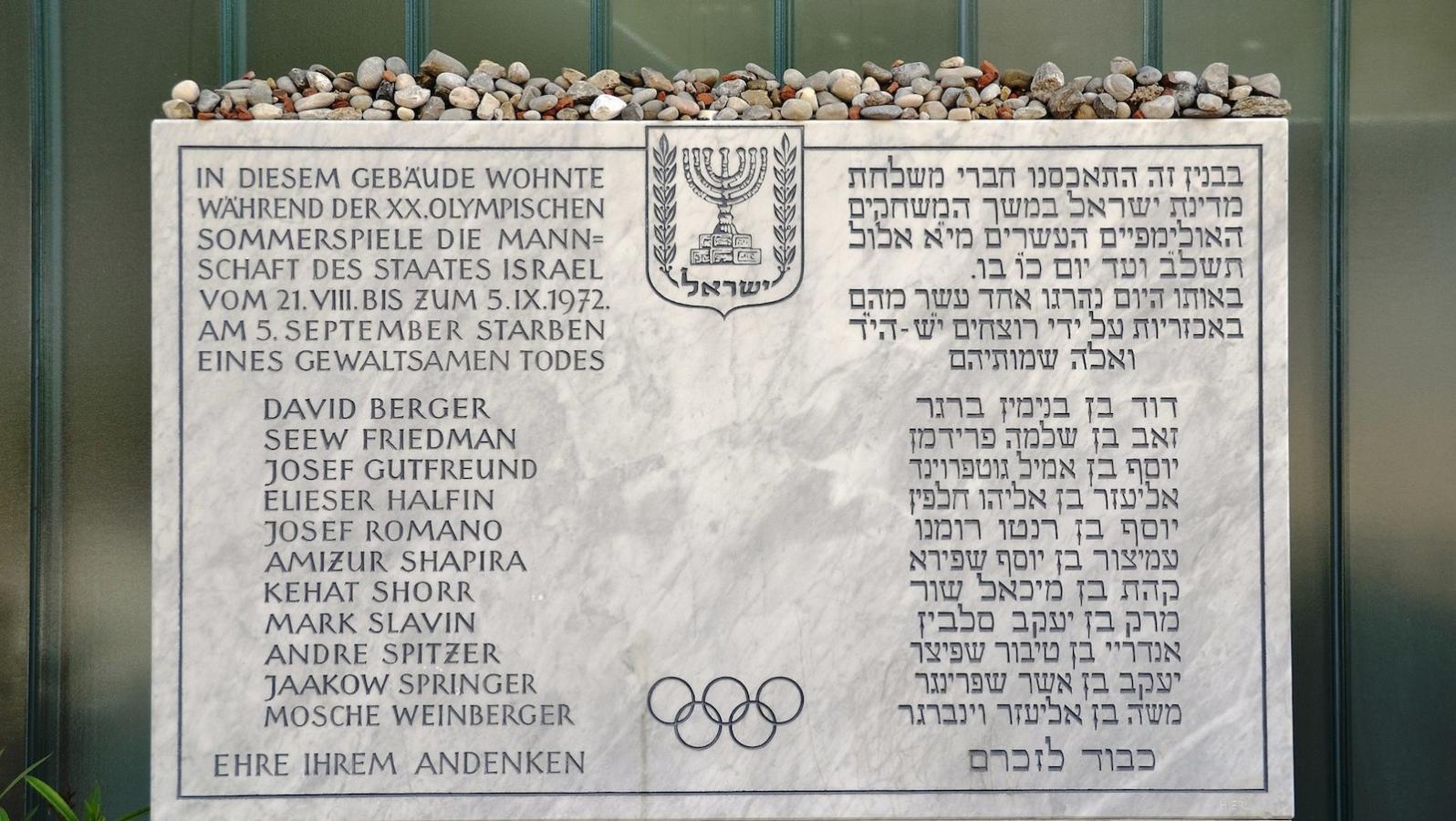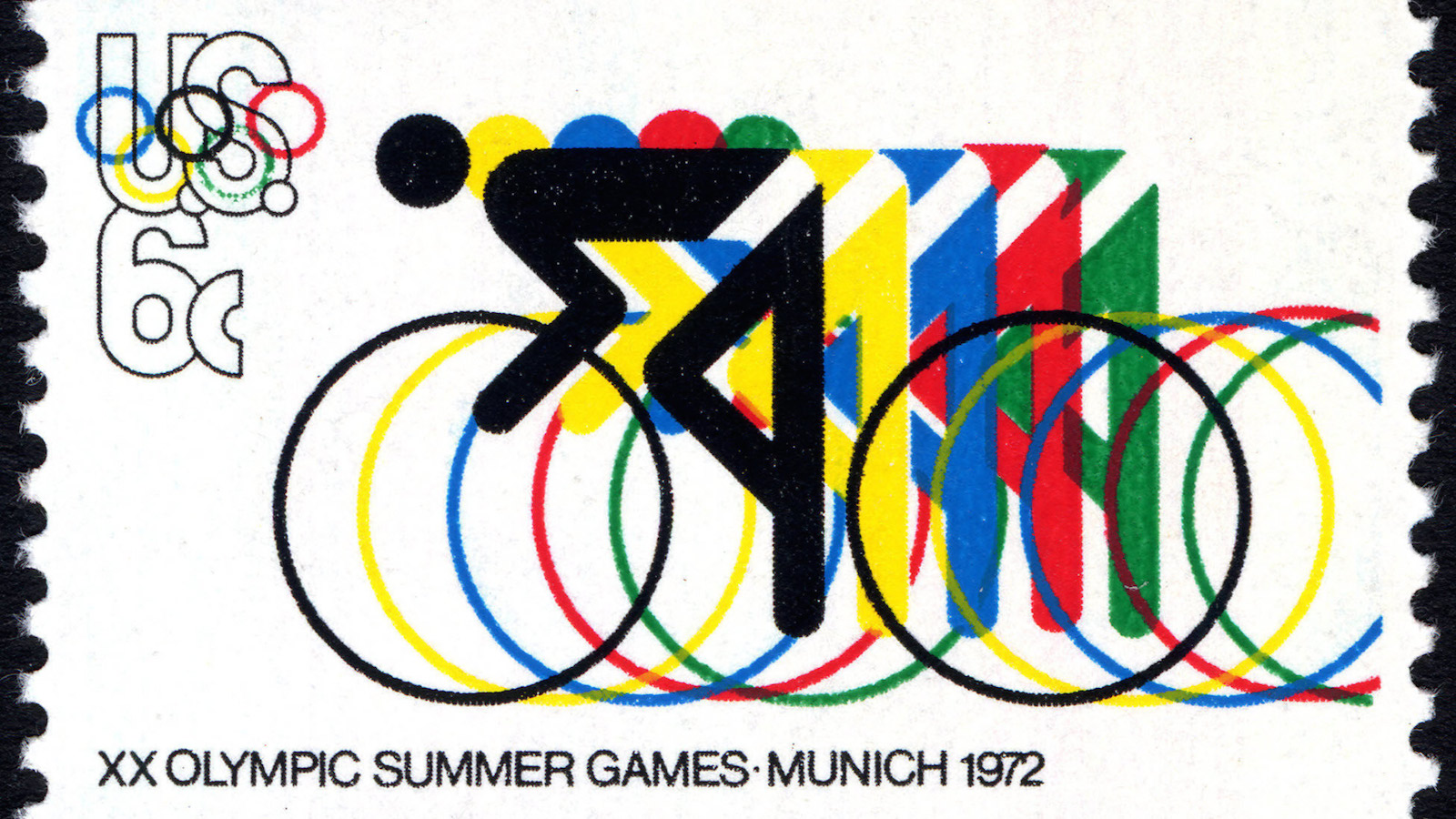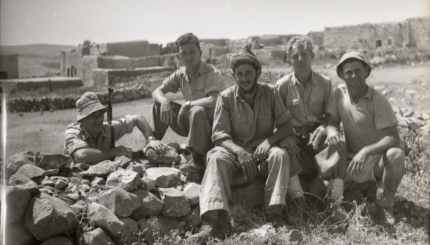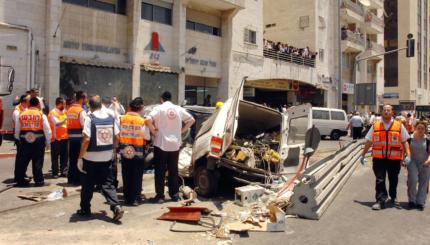When the XX Olympic Games of 1972 were awarded to Munich, both West Germany and Israel hoped it would make a statement about overcoming a horrendous past that had brought so much suffering to Germany, Jews, and many other people all over the world, far beyond the Holocaust.
READ: 11 Israeli Victims of ’72 Olympics Massacre Officially Commemorated in Rio
Perhaps in recognition of the achievements of West German democracy, 122 countries sent 7,156 competitors, of whom over one thousand were women — a record number. For the second consecutive Games there were two German teams: the Federal German Republic (FDR)–also known as West Germany–and East Germany (GDR). As a result, Germany once again had a total of six places in all competitions. This state of affairs remained until reunification in 1990.
Murder
Halfway through the well-organized and peaceful Games–through which Germany hoped to erase the memory of the 1936 Berlin Games — another kind of protest happened. This event was to prove unprecedented in the history of the Games and shocked deeply not only Walther Troger, the man in charge of the Olympic village — where these events took place, but the whole of Germany, and sent shock waves to many parts of the world.

Help us keep Jewish knowledge accessible to millions of people around the world.
Your donation to My Jewish Learning fuels endless journeys of Jewish discovery. With your help, My Jewish Learning can continue to provide nonstop opportunities for learning, connection and growth.
There are many written and visual accounts about what happened during the night beginning on 5 September 1972, when the perimeter fence that surrounded the Olympic village was scaled by Palestinian terrorists, who carried out a well-prepared attack on the temporary residence of the Israeli representatives at 31 Connelly Strasse. It was established later that the attack was orchestrated by ‘Black September,’ a known violent wing of the Palestine Liberation Organization (PLO).
Those in charge of the Olympic camp and security were unprepared for any acts of violence. Two Israelis were killed whilst resisting the eight Palestinians, but others in different areas of the building managed to escape. Among those was the team’s leader, Dr. Shaul Ladany, a university lecturer and also the world record holder for the 100 km walk. Others escaped when awakened by a German cleaning woman.
After numerous negotiations some of the surviving Israelis were flown by helicopter to Munich airport to be transferred to a waiting plane. Overall, 11 Israelis died — two at the village and nine in a helicopter explosion, the latter also claiming the lives of five Palestinian terrorists. A German policeman was also murdered.
The killings did not stop as Israelis hunted down the terrorists and got their revenge whenever in a ‘Wrath of God mission’ they killed surviving members of the Palestinian Black September group. Legal arguments are ongoing and have not as yet led to a financial settlement with those who lost their loved ones.
The story of the massacre was told in the Oscar-winning film documentary One Day in September directed by Kevin Macdonald, produced by John Bassek and Arthur Cohen, and narrated by Michael Douglass. The film was based on the research of the investigative journalist Simon Reeve, who described the events in a book of the same name.
According to Reeve, the attack may have been planned over a number of years and the terrorist groups of Black September had been in close contact with other organizations with similar aims like the so-called ‘Red Army,’ the ‘Baader-Meinhof’ gang, and even groups in East Germany. Their freedom was included in demands for an exchange of 236 prisoners mainly held in Israel, plus 40 of the Israeli athletes and officials at the Olympic Games.
Eyewitnesses

Eyewitnesses confirmed the official account of later years and the facts recorded by Reeve. Henry Kuttner, working as a BBC studio manager and interpreter in Munich, recalls his memories as follows:
The first I knew of it was at 07.30, coming down for breakfast and seeing a BBC colleague from the News department who had just flown in. He explained why he was here. These Games had suddenly become not just a sports event, but headline news for all the world’s media. From then on, the only news we had access to was gleaned from German TV and radio broadcasts. . .
Unfortunately this news and most of what followed was heavily censored, inaccurate, and grossly misleading. After the airport shoot out the German police must have known the full extent of the massacres, but neither German TV nor radio was being allowed to tell its audience the full story. And all the time, I was relaying these untruths in good faith. When at last the dreadful truth emerged, I felt guilty of a crime, having translated all those lies.
Stan Greenberg, a leading sports statistician, worked for many years for the Guinness Book of Records and was involved in many projects involving books about the Olympics. He was in Munich also working for the BBC as a statistician and recalls that 5 September was a rest day for the athletes and, therefore, him too:
I was awoken by commentator Ron Pickering who told me to get dressed quickly as there was serious trouble… The BBC office was overlooking the street where it was all happening, and going outside, I had a front row seat… At one point I could see the four balaclava-wearing terrorists on the balcony–a picture that went round the world–while all about me were hundreds of armed German police and soldiers. I found that it all got to me quite badly, and I eventually had to go back to my room… The following day there was a very moving memorial service in the stadium to which David Coleman, the senior BBC commentator gave perhaps his greatest ever commentary… There were some great sporting achievements in the following days, but I must admit that my heart really wasn’t in it any more, and I was very pleased when I got home.
Ben Helfgott, who competed in the 1956 and 1960 Games as well as the Commonwealth Games in 1958 and four Maccabiah Games, remembers Munich in an article he had written for the Jewish Quarterly:
How well I remember this twenty-hour drama. Ten days earlier I had been at the opening ceremony and had watched with pride and deep emotion as the Israel team received a tumultuous welcoming applause by the 80,000 spectators. During the next few days, I spent a lot of time with them at different venues and receptions and shared in the excitement and euphoria of the Games. The last time I saw five of them was early in the morning of Tuesday 5 September after the completion of the weightlifting competition. I was awakened a few hours later by a friend informing me that the Israeli team was being held hostage.
Ben goes on to describe the aftermath and discussions on continuing the Games:
This unanticipated event overshadowed everything that took place before and after it. The Olympic Village was considered to be hallowed ground and its violation was repugnant and unacceptable to all civilized people. For the first time in history the Olympic Games were suspended so that a memorial service could be held for the murdered Israelis. The mourning ceremony took place in the Olympic Stadium with most of the teams participating. The Soviet and East German teams did not appear… The Games resumed but the soul had gone out of them. Some Dutch and Norwegian competitors went home in protest.
‘The Games Must Go On’
Avery Brundage, the president of the IOC, and Walther Troger, who was in charge of the Olympic village, a number of German politicians, and others including the Israel officials–who were in constant contact with their prime minister, Golda Meir–eventually came to the conclusion that ‘The Games must go on,’ reasoning that if the Games had been abandoned, the murderers would have scored a deplorable victory.
Some dozen years later, Shmuel Lalkin, the leader of the Israeli Olympic team, reflected on the terrible events in words that echoed the above reasoning:
The main question was whether the Games should go on or not. It caused quite a dispute also in this country, whether we should go on or not. We pulled our team out. We couldn’t go on without them [the murdered team members]. But for the Games to go on… I think the decision was right to keep the Games going, because if not, the terrorists would have gained in their purpose to stop the Games.
In addition to Israel, the Netherlands, the Philippines, and Norway–as well as the contingent from the GDR–would not accept the continuation of the Games, with the latter feeling that this would be seen as a kind of victory for the West. Other individuals left and a general feeling of depression and devastation remained until the end of the Games.
Reprinted with permission from Jews and the Olympic Games (Vallentine Mitchell).



